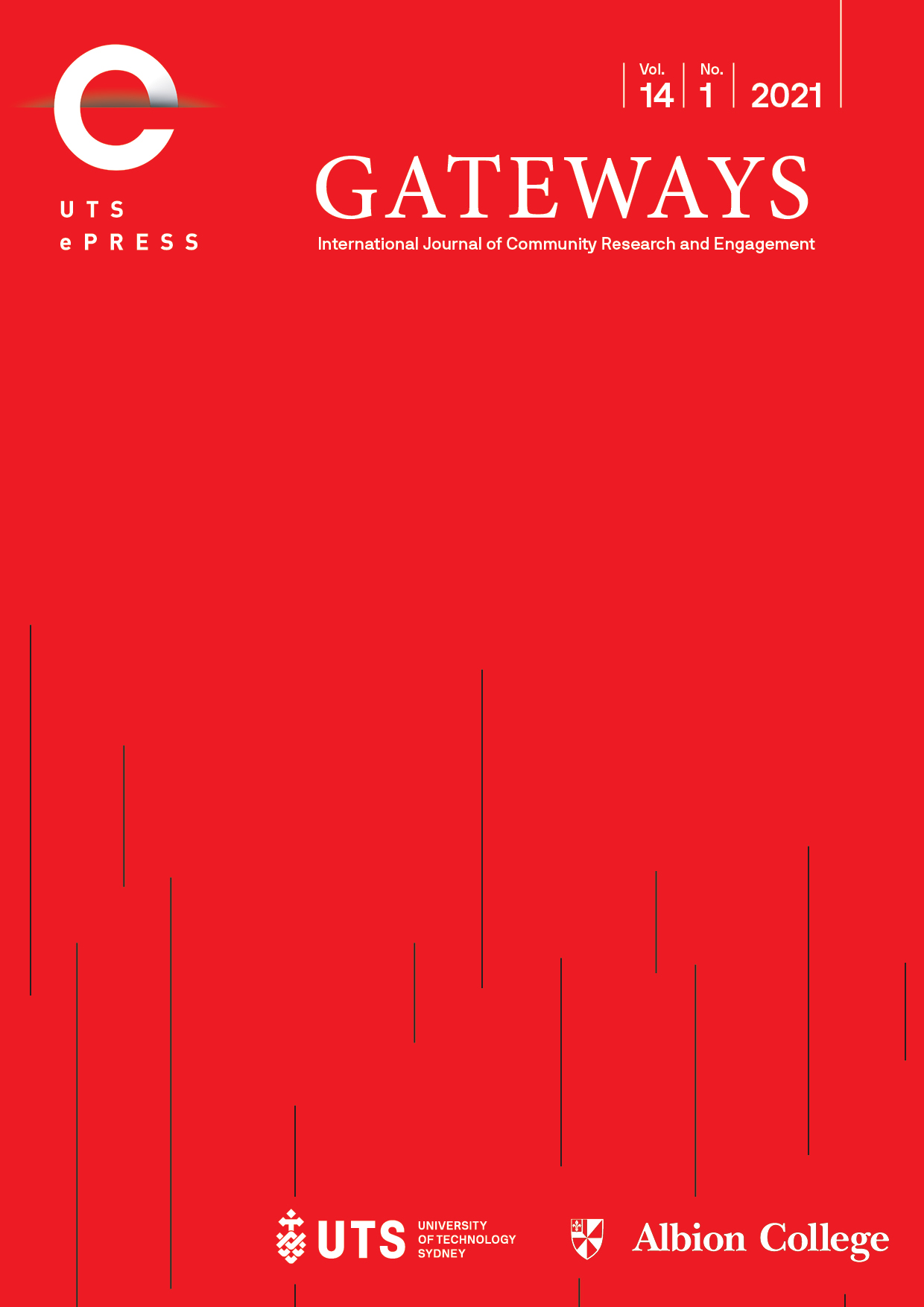Implementing community-based participatory research among African Americans with serious and persistent mental illness: A qualitative study
Main Article Content
Abstract
Community-based participatory research (CBPR) is an approach that involves community members in research, not as research participants, but as partners. However, few studies have examined CBPR projects conducted among African Americans with serious and persistent mental illness (SPMI). This article focuses specifically on the Inspiring Change (IC) model, which includes a leadership trio comprised of an academic researcher, health service provider and an African American with lived experience of SPMI. Our purpose is to investigate how the IC model shapes not only how research is conducted but how research is understood and experienced by the community. We achieve this purpose by (1) describing an innovative CBPR model and pilot projects that involved African Americans with SPMI in all stages of the research project; and (2) presenting findings from qualitative interviews conducted with CBPR team members about strengths, challenges and leadership particular to this model of CBPR, an area rarely explored in CBPR literature.
With the guidance of an advisory board and the manualised IC curriculum, two CBPR teams initiated and conducted nine-month long research projects focusing on health disparities for African Americans with SPMI. Members of the two CBPR teams (n = 13), which included individuals with lived experience, service providers and researchers, completed qualitative interviews. Benefits of CBPR projects included opportunities to learn, a sense of purpose in helping others and increased trust of research participants. Challenges pertained to disorganisation of leadership, lack of transparency with compensation, time pressures and interpersonal conflicts. These challenges highlight the importance of preparing and supporting those from both academic and lived experience backgrounds in skills necessary to thrive in leadership roles for CBPR projects.
Article Details
Issue
Section
Authors who submit articles to this journal from 31st March 2014 for publication, agree to the following terms:
a) Authors retain copyright and grant the journal right of first publication with the work simultaneously licensed under a Creative Commons Attribution License that allows others to share and adapt the work with an acknowledgement of the work's authorship and initial publication in this journal.
b) Authors are able to enter into separate, additional contractual arrangements for the non-exclusive distribution of the journal's published version of the work (e.g., post it to an institutional repository or publish it in a book), with an acknowledgement of its initial publication in this journal.
c) Authors are permitted and encouraged to post their work online (e.g., in institutional repositories or on their website) prior to and during the submission process, as it can lead to productive exchanges, as well as earlier and greater citation of published work (See The Open Access Citation Advantage Service). Where authors include such a work in an institutional repository or on their website (ie. a copy of a work which has been published in a UTS ePRESS journal, or a pre-print or post-print version of that work), we request that they include a statement that acknowledges the UTS ePRESS publication including the name of the journal, the volume number and a web-link to the journal item.
d) Authors should be aware that the Creative Commons Attribution (CC-BY) License permits readers to share (copy and redistribute the work in any medium or format) and adapt (remix, transform, and build upon the work) for any purpose, even commercially, provided they also give appropriate credit to the work, provide a link to the license, and indicate if changes were made. They may do these things in any reasonable manner, but not in any way that suggests you or your publisher endorses their use.
For Volume 6 (2013) and before, the following copyright applied:
Articles published by UTSePress are protected by copyright which is retained by the authors who assert their moral rights. Authors control translation and reproduction rights to their works published by UTSePress. UTSePress publications are copyright and all rights are reserved worldwide. Downloads of specific portions of them are permitted for personal use only, not for commercial use or resale. Permissions to reprint or use any materials should be directed to UTSePress.
